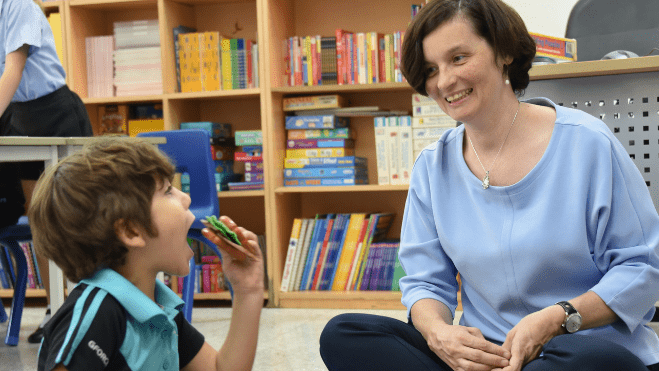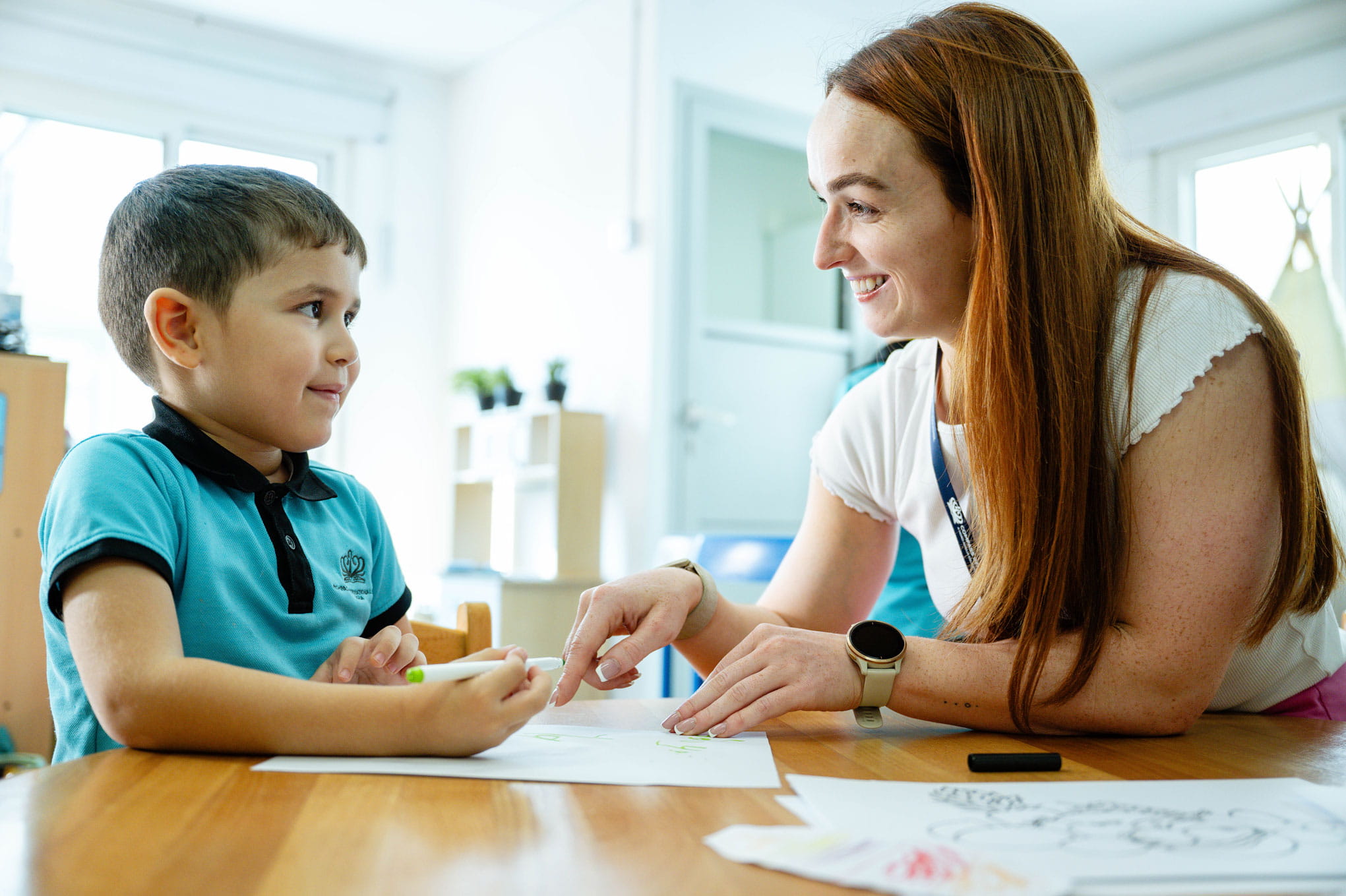
Starting at a new school and moving to a new country at the same time – one of the most difficult moments in a child’s life. At Compass International School Doha, we make sure that the transition into a new culture, an unknown language and an international community is as smooth as possible. The English as an Additional Language (EAL) department has a key role in assisting the students with their English language learning and integration into the school environment.
How is EAL support organised?
- When a new family arrives, they meet the EAL teacher during the admission process. Following an informal, often play-based language assessment, the EAL specialist informs the class teachers and the parents about the English language support offered to the newcomer. If possible, the EAL teacher will find a buddy at school who speaks the same language. At the same time, the class teacher will make sure that the new student feels welcome and integrated in class. There are visuals in different languages on the display boards, translation apps are used to make communication easier. Each little step of language learning is celebrated during the school day.
- The new students will be offered EAL lessons where they can learn all language skills in small groups. The primary focus is on developing the speaking and listening skills which represent the most necessary prerequisite for learning any subject at school. In the curriculum teaching, class teachers pay special attention on developing the students’ vocabulary and understanding of topic-specific words.
- When the students reach an intermediate level of English, the EAL teacher will help them with the learning of the curriculum in the classroom. In an international school setting, the students are expected to reach this level within their first school year – and they actually do progress very fast!
How do we monitor progress?
Progress in learning English is very important not only for understanding the curriculum but also for making friends and being able to communicate with the other members of the community. This is why we monitor and record progress so that we can support the students in the areas that they need the most.
The first step is an English language assessment conducted by the EAL teacher in four language skills: speaking, listening, reading and writing. Younger children will have an informal, play-based session with the EAL specialist; older students sit a full test session. After setting the targets for the students, the EAL teacher will organise the small group sessions with students on similar levels.
Informal assessments take place regularly throughout the school year. In form of quizzes, video presentations or short written assignments, these assessments tell the teachers in which areas the students progress most and which areas they need more reinforcement. At the end of the year, there is another, more formal EAL assessment session. The class teachers are informed about the students’ progress and together with the EAL teacher, they decide when the children are ready to enter the curriculum learning in class.
How do we integrate cultural and linguistic diversity into the curriculum and classroom activities?
At Compass International School, we celebrate the different languages and cultures that the students arrive with, and we integrate them into the classroom as often as possible. In IPC, the topics always reflect international mindedness and diversity so that each child can understand and contribute to the main theme. Additionally, there are certain lessons when the students enjoy learning words from other languages and display their knowledge on the boards in the classroom. During the school year, we organise different events that are meant to celebrate the cultural and linguistic diversity at school: International Week, Book Week with reading in different languages, bilingual presentations etc.
Mother tongues also serve as tools of learning at school. If the new students need additional explanation of a topic, we will find a member of staff who speaks the same language to explain the unknown words. It is worth mentioning that native languages are often used to offer emotional support to the children. They feel safe and comforted if they hear their own languages and this helps them integrate into the school easier.
At school, our motto is “We all teach English.’ Language learning is integrated in all lessons, no matter what subject it is. The class teachers and specialists are very experienced and well trained; they teach curriculum and language at the same time. During the continuous professional development trainings, we emphasise the importance of language teaching across the curriculum. The EAL teacher offers CPD sessions to all teachers and learning assistants every year, along with regular meeting about certain aspects of language acquisition. The teachers are encouraged to follow the EAL courses on NAU and other online platforms or to get in contact with fellow teachers from other NA school to discuss about bilingualism and multicultural learning environments.
Beata Jarosova
Head of EAL








